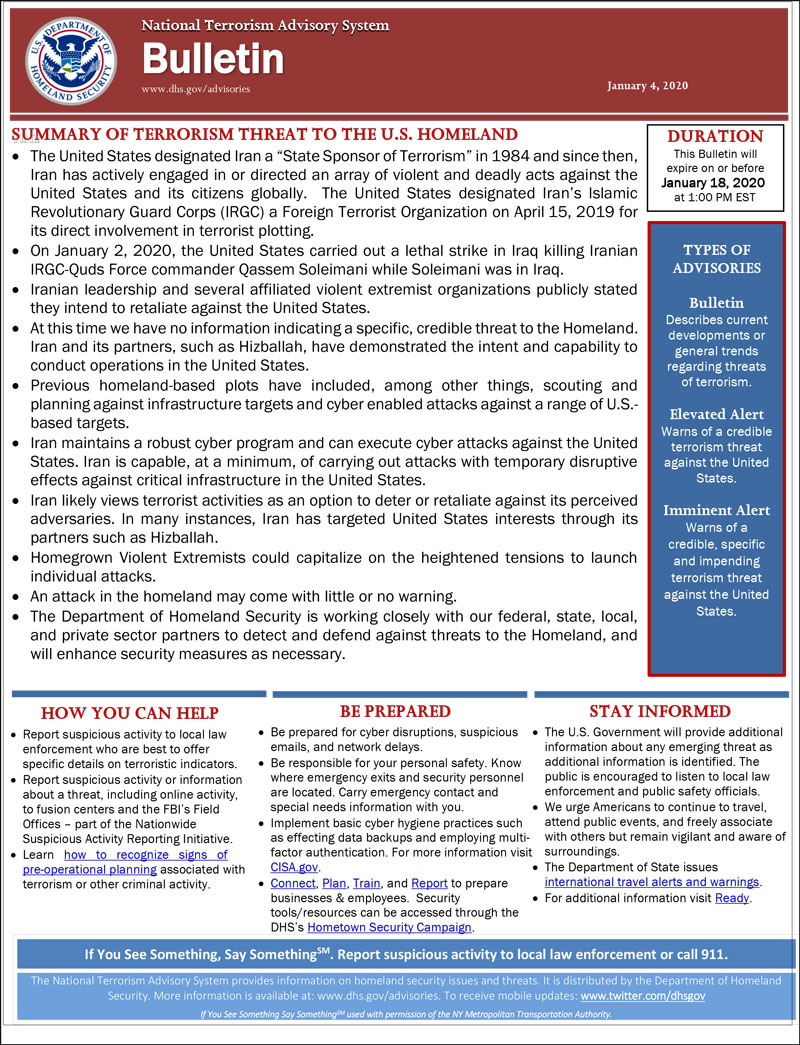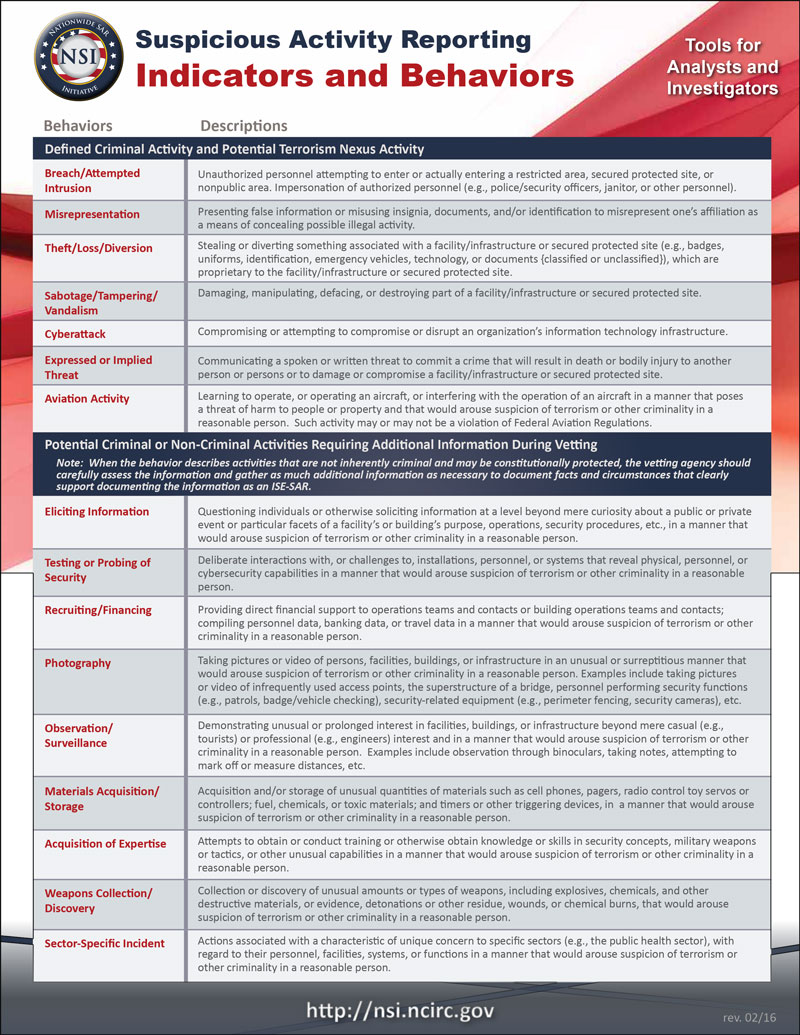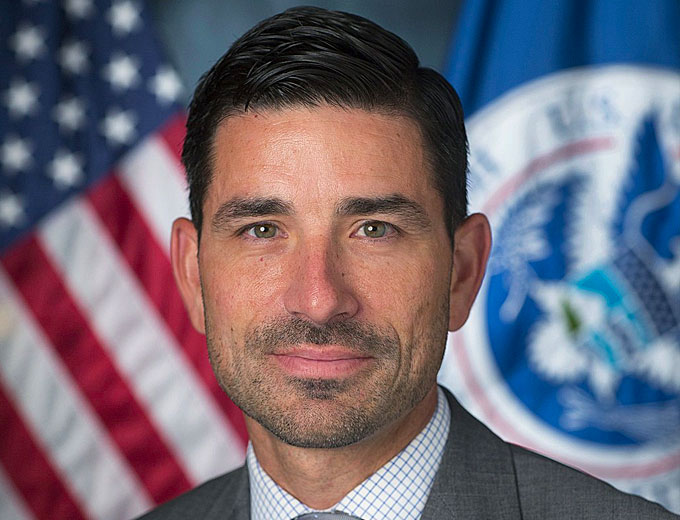Acting Secretary of Homeland Security Chad F. Wolf issued a new National Terrorism Advisory System (NTAS) Bulletin on Saturday, in response to the changing threat landscape following the successful U.S.-led airstrike in Iraq that killed Qaseem Soleimani, the head of the Iranian Revolutionary Guard Corps-Quds Force, a U.S.-designated Foreign Terrorist Organization.
“At this time there is no specific, credible threat against the homeland,” said Acting Secretary Wolf.
“The Department issued this bulletin to inform, share protective measures, and reassure the American public, state and local governments, and private sector partners that the Department of Homeland Security is actively monitoring and preparing for any specific, credible threat, should one arise.”
“The Department is operating with an enhanced posture and various operational components are taking protective measures where prudent and necessary.”
“We have been in constant communication with Congress and interagency partners.”
“The American people should feel assured the entire Department is working for them to keep them safe.”
(NBC News’ Dasha Burns details the moments that lead to President Trump’s decision to launch an airstrike on top Iranian General Qassem Soleimani outside of the Baghdad airport. Courtesy of NBC News and YouTube. Posted on Jan 3, 2020.)
In Summary
The United States designated Iran a “State Sponsor of Terrorism” in 1984 and since then, Iran has actively engaged in or directed an array of violent and deadly acts against the United States and its citizens globally.
The United States designated Iran’s Islamic Revolutionary Guard Corps (IRGC) a Foreign Terrorist Organization on April 15, 2019 for its direct involvement in terrorist plotting.
Key Details
-
On January 2, 2020, the United States carried out a lethal strike in Iraq killing Iranian IRGC-Quds Force commander Qassem Soleimani while Soleimani was in Iraq.
-
Iranian leadership and several affiliated violent extremist organizations publicly stated they intend to retaliate against the United States.
-
At this time we have no information indicating a specific, credible threat to the Homeland. Iran and its partners, such as Hizballah, have demonstrated the intent and capability to conduct operations in the United States.
-
Previous homeland-based plots have included, among other things, scouting and planning against infrastructure targets and cyber enabled attacks against a range of U.S.-based targets.
-
Iran maintains a robust cyber program and can execute cyber attacks against the United States. Iran is capable, at a minimum, of carrying out attacks with temporary disruptive effects against critical infrastructure in the United States.
-
Iran likely views terrorist activities as an option to deter or retaliate against its perceived adversaries. In many instances, Iran has targeted United States interests through its partners such as Hizballah.
-
Homegrown Violent Extremists could capitalize on the heightened tensions to launch individual attacks.
-
An attack in the homeland may come with little or no warning.
-
The Department of Homeland Security is working closely with our federal, state, local, and private sector partners to detect and defend against threats to the Homeland, and will enhance security measures as necessary.

Different Types of Advisories
Bulletin
Describes current developments or general trends regarding threats of terrorism.
Elevated Alert
Warns of a credible terrorism threat against the United States.
Imminent Alert
Warns of a credible, specific and impending terrorism threat against the United States.
How You Can Help
-
Report suspicious activity to local law enforcement who are best to offer specific details on terroristic indicators.
-
Report suspicious activity or information about a threat, including online activity, to Fusion Centers and the FBI’s Field Offices – part of the Nationwide Suspicious Activity Reporting Initiative.
-
Learn how to recognize signs of pre-operational planning associated with terrorism or other criminal activity.
(Homeland security begins with hometown security. This PSA seeks to empower everyday citizens to protect their neighbors and the communities they call home by recognizing and reporting suspicious activity. Across the country, we all play a role in keeping each other safe. Courtesy of U.S. Department of Homeland Security and YouTube.)
Suspicious Activity Reporting Indicators and Behaviors
The tool below is for analysts and investigators details potential criminal or noncriminal activities requiring additional information during the vetting process or investigation, as well as defined criminal activity and potential terrorism nexus activity.
When the activity involves behavior that may be lawful or is a constitutionally protected activity, the investigating law enforcement agency will carefully assess the information and gather as much information as possible before taking any action, including documenting and validating the information as terrorism-related and sharing it with other law enforcement agencies.

Be Prepared
-
Be prepared for cyber disruptions, suspicious emails, and network delays.
-
Be responsible for your personal safety. Know where emergency exits and security personnel are located. Carry emergency contact and special needs information with you.
-
Implement basic cyber hygiene practices such as effecting data backups and employing multi-factor authentication. For more information visit CISA.gov.
-
Connect, Plan, Train, and Report to prepare businesses & employees. Security tools/resources can be accessed through the DHS’s Hometown Security Campaign.
Stay Informed
-
The U.S. Government will provide additional information about any emerging threat as additional information is identified. The public is encouraged to listen to local law enforcement and public safety officials.
-
We urge Americans to continue to travel, attend public events, and freely associate with others but remain vigilant and aware of surroundings.
-
The Department of State issues international travel alerts and warnings.
-
For additional information visit Ready.gov.

















